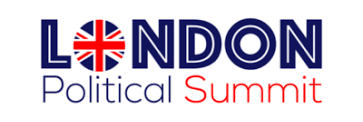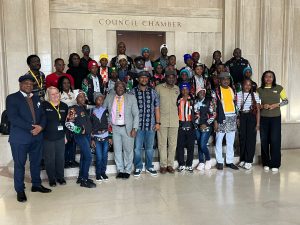FOR IMMEDIATE RELEASE
Fueling the Future or Fanning the Flames? Examining Nigeria’s Petroleum Pricing Crisis
Nigeria’s fuel crisis has become a focal point amid ongoing economic challenges, sparking widespread debate and concern. As the country battles persistent fuel shortages, soaring prices, and a strained economy, recent developments surrounding the Dangote Refinery and the Nigerian National Petroleum Company Limited (NNPCL) have added further complexity. Central to this situation is a puzzling petroleum pricing model that has left many Nigerians, including industry insiders, questioning the rationale behind these decisions.
The NNPCL’s near-monopoly on the supply, distribution, and pricing of petroleum products has long been controversial. The introduction of products from the Dangote Refinery was expected to bring relief, particularly by reducing the cost of importing refined petroleum. Since the refinery sources crude locally and pays in Naira, many anticipated a significant drop in fuel prices, given the savings on foreign exchange, shipping, and logistics.
Yet, fuel prices continue to rise, exacerbating inflation and deepening the economic burden on Nigerians. The pressing question is: why?
The Confounding Pricing Model
At the core of this dilemma is the pricing arrangement emerging from the exclusive deal between the Dangote Refinery and NNPCL. Reports suggest that Dangote Refinery has an exclusive agreement granting NNPCL the sole right to purchase its refined products. This has raised concerns that the Federal Executive Council (FEC) may have to step in to regulate prices, rather than allowing the market to determine them through competition.
The situation becomes even more confusing when considering the potential benefits of local refining. By receiving crude oil in Naira and refining it domestically, Dangote Refinery should be able to offer its products at lower prices, free from the impact of dollar exchange rates and import costs. However, fuel prices have continued their upward trajectory.
Understanding the Costs
To make sense of this paradox, we must first unpack the key cost factors at play:
- Production Costs: This refers to what Dangote Refinery spends to produce each liter of petroleum. With local crude sourcing and the elimination of foreign shipping costs, this should theoretically be lower than the cost of importing refined products.
- Distribution Costs: These cover the expenses NNPCL incurs in transporting and distributing fuel to Nigerian consumers. Ideally, lower production costs should also lead to reduced distribution costs, further lowering prices for consumers.
Yet, the current pricing model reflects none of these potential savings. Instead, fuel prices continue to rise, deepening economic challenges and fueling concerns about inflation.
The Monopoly Factor
A significant part of the problem lies in the exclusive agreement between Dangote Refinery and NNPCL. By positioning itself as the sole buyer of Dangote’s products, NNPCL has effectively eliminated market competition. This monopolistic arrangement allows NNPCL to set prices with little pressure to lower them, contributing to the current trend of unchecked price increases.
In a competitive market, multiple buyers would be able to purchase refined products from Dangote, driving prices down as companies compete for market share. Unfortunately, the current model stifles competition and keeps prices artificially high.
The Need for a Market-Driven Approach
The notion that the FEC may need to intervene to regulate fuel prices raises serious concerns about the direction of Nigeria’s petroleum industry. A market-driven approach, where multiple players are allowed to compete, would likely result in lower prices and greater stability. Rather than relying on government intervention, the market should be allowed to dictate prices, encouraging efficiency and competitiveness.
Allowing other companies to import petroleum products would inject much-needed competition into the market. This would apply downward pressure on prices, preventing NNPCL from monopolizing its position as the sole buyer of Dangote Refinery’s output. Such a move would benefit not only consumers but also the broader economy, as lower fuel prices would alleviate inflationary pressures and reduce the cost of living.
Conclusion: A Call for Rational Economic Policies
Nigeria stands at a critical economic crossroads. The decisions made regarding petroleum pricing and distribution today will have far-reaching consequences for the nation’s future. It is vital for all stakeholders—Dangote Refinery, NNPCL, and the government—to prioritize the welfare of the Nigerian people in their decision-making.
The current pricing model is unsustainable and defies economic logic, leading to escalating fuel costs and worsening hardships for millions of Nigerians. To avert a looming crisis, Nigeria must adopt a more competitive, market-driven approach that allows for multiple players in the industry and ensures that the benefits of local refining are passed on to consumers.
The time to act is now. Nigeria cannot afford to continue down this path of rising fuel prices and economic instability. The petroleum industry must realign its strategies with the best interests of the Nigerian people, ensuring that fuel becomes a resource that drives growth and prosperity, not a source of burden.
Nigerian Leadership Forum
A Non-Governmental Think Tank
???? Email: yes2nigeria@gmail.com




